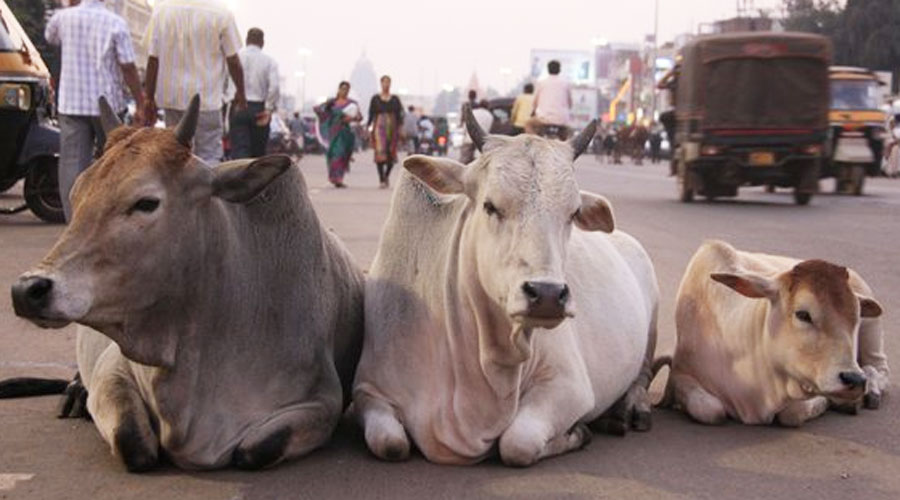An ordinance that prohibits cattle slaughter in Karnataka has kicked in with police in Chikmagalur booking two cases for illegal transport of cows.
Drivers of two cattle transport vehicles were found badly injured by police after being allegedly assaulted by unidentified cow vigilantes on January 8 near Sringeri in Chikmagalur, 320km from Bangalore. The matter came to light only late on Wednesday.
The police have booked both the drivers under the recently implemented Karnataka Prevention of Slaughter and Preservation of Cattle Act, 2020.
According to the police, the transporters identified as Shaan and Abid Ali were separately taking 15 heads of cattle from Davangere to slaughterhouses in Mangalore, 270km apart, in two trucks on January 8 when they were attacked within hours of each other.
If convicted, Shaan and Ali, who has been left with a fractured arm, could be jailed for up to three years for illegally transporting cattle to slaughterhouses.
A separate case of assault and illegal detention has been booked against unknown persons.
A police source said one of the assailants had been arrested but refused to give further details, including his political affiliation.
The two men were attacked just three days after the BJP government in the state took the ordinance route to pass the new cattle slaughter law after failing to get it cleared in the Legislative Council (upper House) where it lacked sufficient numbers.
Karnataka High Court had on Tuesday issued notice to the state government after one Mohammed Arif Jameel challenged the law and sought a stay on its operation.
While cow slaughter was not allowed in the state even under the old law — the Karnataka Prevention of Cow Slaughter and Cattle Preservation Act, 1964 — the new one prohibits the slaughter of even oxen and bulls.
It allows the slaughter of only buffalos over 13 years and certified by a government veterinarian, a decision that has hit the meat industry in Karnataka. Illegal slaughter could fetch up to seven years in jail, as opposed to up to six months in the old law.
Ali Hassan, vice-president of the Karnataka Jamiyyathul Qureshi Meat Merchants’ Association, said he was not surprised at the two incidents of cow vigilantism. “We had feared more such violent attacks after the ordinance was promulgated,” he told The Telegraph on Thursday.
Miscreants allegedly from the Sangh parivar had set fire to two makeshift beef stalls in Mangalore a day after the ordinance was promulgated.
“We have heard many people saying these were illegal beef stalls. But let me make it clear that they were built by the Ullal municipality,” Hassan said.
The civic body has since rebuilt the stalls and allowed resumption of beef sales but no one has been arrested for arson.
“The problem with all these vigilantism is that only we people suffer and those who inflict such harm on us and our livelihood go scot-free,” lamented Hassan.
“There are over one lakh people engaged in the meat industry in Karnataka alone. They include those who work in slaughterhouses, meat shop owners, cleaners and the thousands who work in tanneries,” he added.
Neighbouring Goa faced a severe shortage of beef on Christmas because of the Karnataka slaughter ban.











